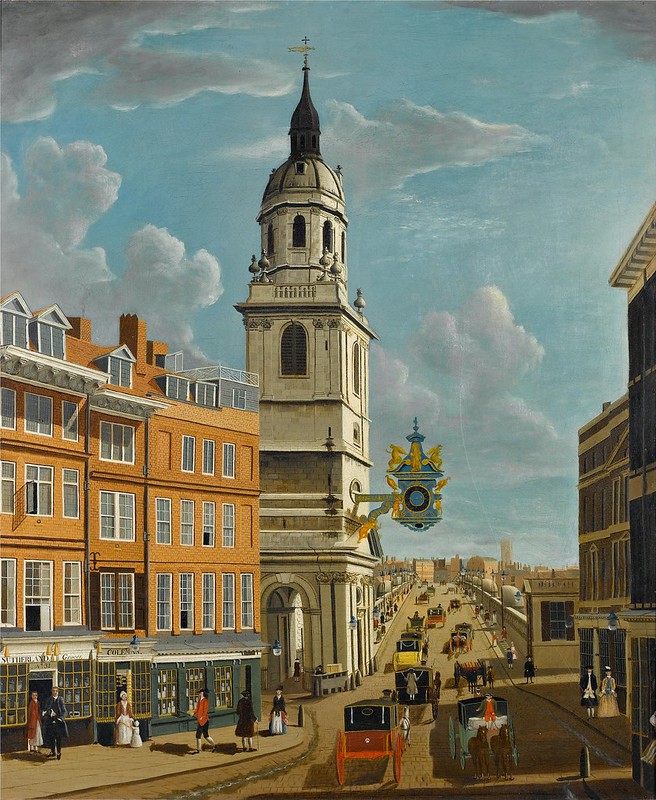John Stanley (1712-1786)
- Concerto (IV, c) for the Organ, Opera X (1775)
Performers: Stеphen Fаrr (organ); London Bаch Consort
---
English composer and organist. At the age of 2 he had an accident that
left him virtually blind, but nonetheless he studied organ with John
Reading, and when that was unsatisfactory, with Maurice Greene. By 1726
he had been organist at All Hallows and was appointed at the age of 14
in a similar position at St. Andrews in Holbourne. In 1729 he received a
bachelor’s degree in music from Oxford University, from where he
returned to London to become a member of the Society of the Inner Temple
in 1734. At the same time he performed as a violinist, arranging a
series of public concerts at the Swan Tavern, Cornhill, and Castle
Tavern on Paternoster Row. By 1742 he was employed at the royal court
and soon became a friend of George Frederick Handel. After Handel’s
death, in 1760 he continued to develop oratorio concerts in conjunction
with John Christopher Smith Jr. In 1770 he was elected to the board of
the Foundling Hospital, and in 1779 he succeeded William Boyce as master
of the King’s Musick. Stanley was well regarded, both for his majestic
performance and for his compositions. These include an opera,
Teremintas; a large-scale cantata, The Choice of Hercules; and four
oratorios (Jephthah, 1757; Arcadia, 1761; The Fall of Egypt, 1774; and
Zimri). He also composed odes for the English court birthdays and other
occasions; these have mostly been lost and their exact number is
unknown. In addition, he regularly published his music, beginning in
1740 with the eight solos for the flute. These works, as Op. 1-10,
include three sets of organ voluntaries (1748-1754), six organ
concertos, 15 cantatas, and six “concertos” for solo keyboard. His style
is similar to that of Thomas Arne or William Boyce.

Cap comentari:
Publica un comentari a l'entrada